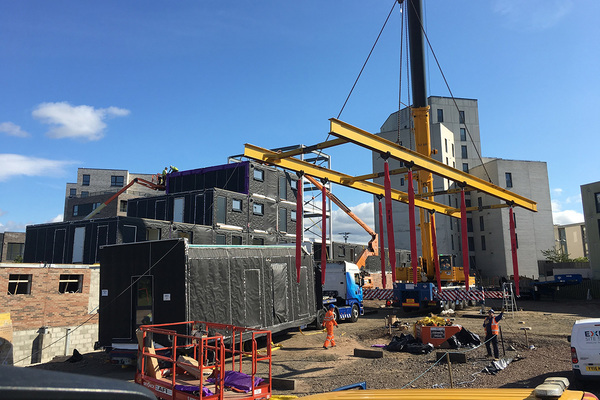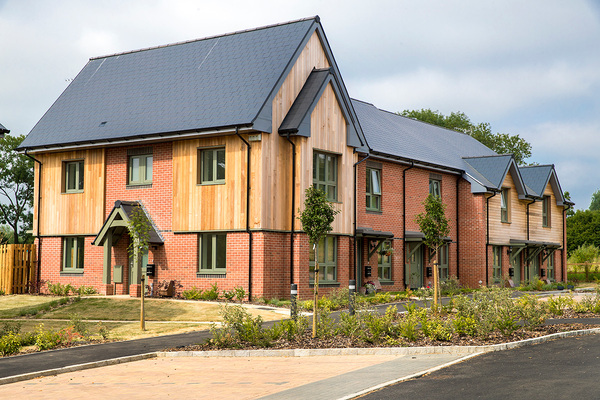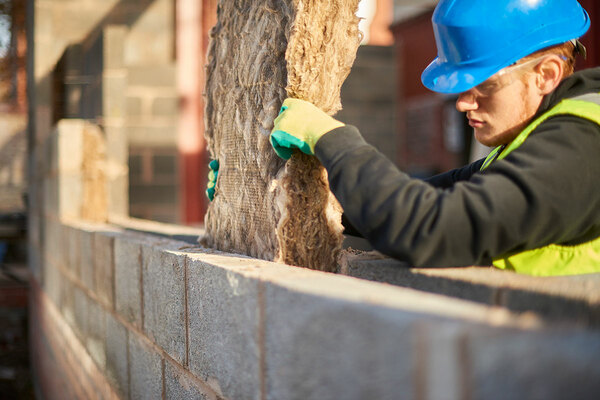You are viewing 1 of your 1 free articles

Housing providers will stand a much better chance of hitting zero carbon targets if they join forces
We all know there’s an urgent need to tackle climate change. The big question is: how are we going to do it? A more collaborative approach could provide the answers, says David Cowans
There have been many discussions about the role our sector can play in tackling climate change, but much less has been said about how we’re going to achieve this. The need for action is clear, so our focus must now shift onto developing reliable and affordable solutions that can be delivered at scale.
Decarbonising homes and implementing measures that will significantly improve energy efficiency is challenging and will take time. However, it’s a process that could be made easier if we work more collaboratively within our sector. By joining forces to share research, best practice and lessons learned, we stand a much better chance of meeting zero carbon targets.
There are initiatives taking place in the UK and across Europe that can provide valuable insights into the technologies, processes and costs required to decarbonise our existing stock – and that we can all learn from.
One example is DREEAM, a European-funded project that seeks to prove that large-scale refurbishments deliver greater and more cost-effective energy efficiency than single-property schemes do. The DREEAM UK pilot took place at our neighbourhood in Padiham near Burnley, Lancashire, and involved more than 100 homes.
Built in the 1970s, the properties had various design flaws that were causing issues including damp, mould and draughts. To tackle this, we installed a broad mix of renewable technologies in each property, including highly efficient storage heaters, solar panels, insulation, ventilation and hot water systems. No gas heating was used.
“Energy use has been continuously monitored, revealing that some residents’ bills have been slashed in half”
Customer engagement was a fundamental part of the project’s success. Extensive consultation with residents, including meetings with a specialist consultant, ensured that people could have a say in the design process and understood the project’s drivers, as well as how to use the new equipment and further reduce their energy consumption.
Energy use has been continuously monitored, revealing that some residents’ bills have been slashed in half. But the impact is far greater than that – the project has vastly improved the well-being of customers and the neighbourhood now has a waiting list. These positive outcomes have provided us with both the data and the insights we need to help scale up the solution and achieve zero carbon on an existing neighbourhood by 2050.
Another European project that is addressing the challenges of transitioning to zero carbon is SHIFFT. It’s doing this by installing measures in several pilot areas to demonstrate sustainable heating and develop best practice to share.
One of our pilot sites as part of SHIFFT is Leeway Refuge in Norwich. The focus is on testing new technologies that could deliver sustainable heating. The project involves engagement with residents and other stakeholders, including the local authority, to help co-design the solution.
Following a period of monitoring and evaluation, we hope to share the results in 2022, not only locally, but across the sector to help others learn from the result and potentially accelerate decarbonised heating in existing stock.
“Given the huge variation in property types across the UK, zero carbon solutions will be varied and, in some cases, complex”
To complement this work, we are working with Sunamp, a provider of heat battery technology, to help broaden our understanding of how we can decarbonise heating in homes. Sunamp’s batteries can store large amounts of energy from renewable sources and release it as heat to deliver hot water and space heating when required.
Given the huge variation in property types across the UK, zero carbon solutions will be varied and, in some cases, complex. That’s why we’ve also partnered with Energy Systems Catapult to identify seven SMEs that could help us meet the challenge. Over the next 12 months, we’ll be working with these businesses to explore new technologies and systems that could help mitigate the impact of climate change and establish how we could adapt our housing stock.
To address the environmental challenges we are already facing, we need to act now. The debate should not be about whether we need to change the way we work to meet sustainability goals, but how.
We don’t have all the answers yet, but these could become much clearer if we work collaboratively, seek opportunities to learn from each other and share the findings of our research. We’re very open to this approach and hope others are, too.
By working together, we have the potential to deliver undeniable positive change that will benefit all of us.
David Cowans, chief executive, Places for People













